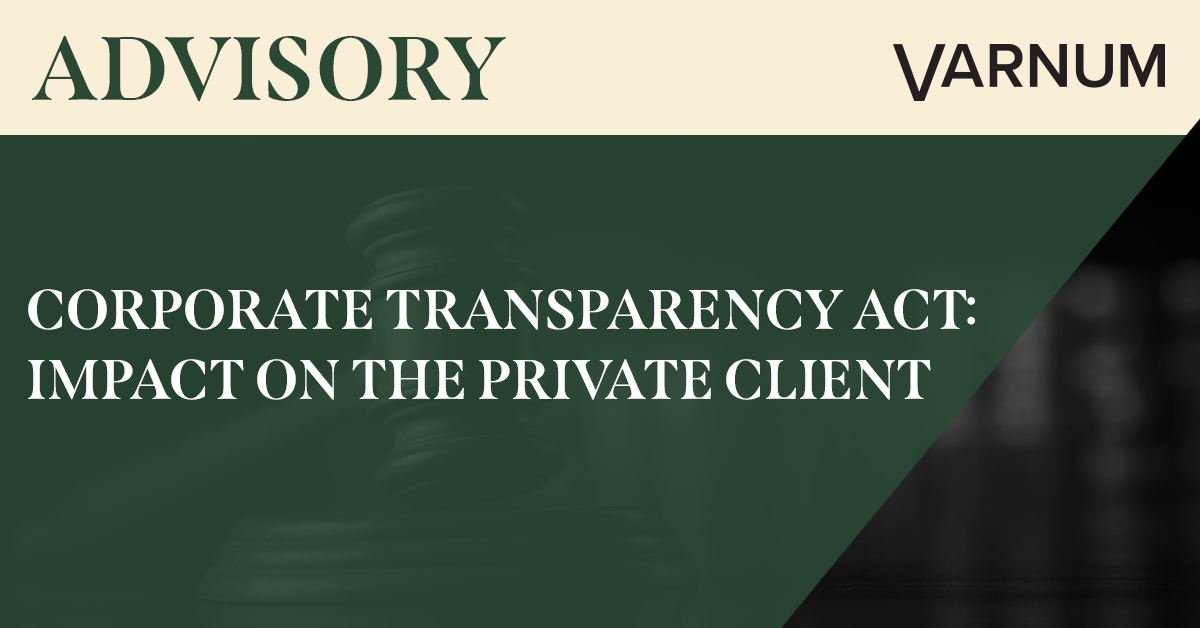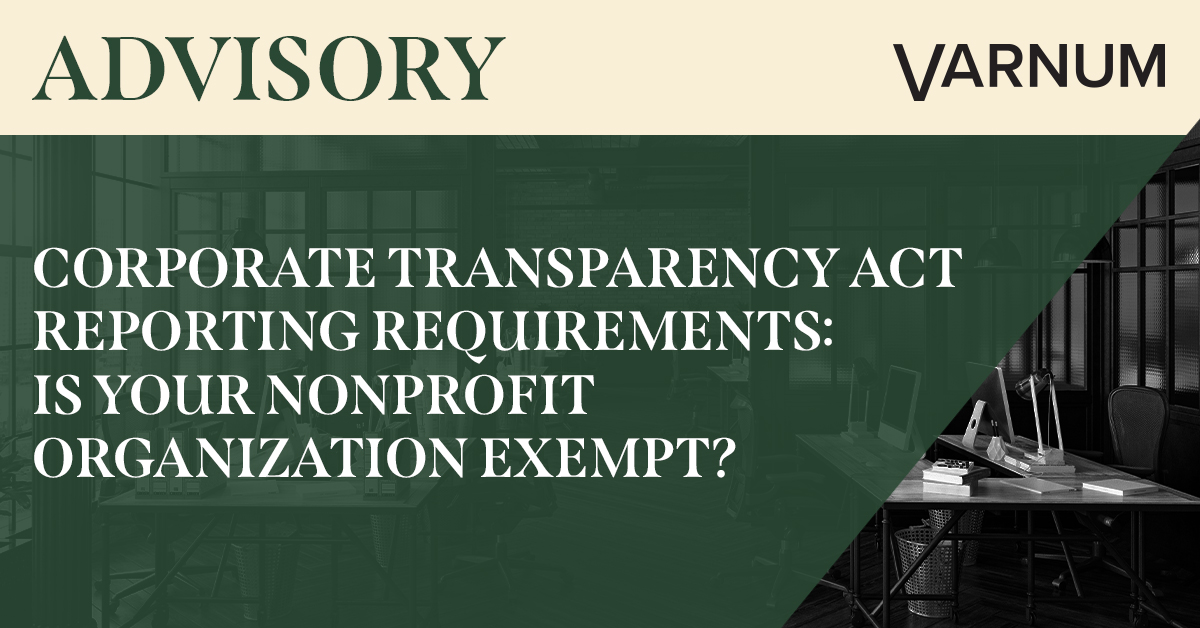A reporting company is exempt only if it falls into one of twenty-three prescribed exemptions, including SEC reporting companies, insurance companies, financial institutions, broker-dealers, investment companies and advisers, and other publicly registered entities.
Exemptions of particular interest to privately held companies include:
- Large operating companies that directly employ more than 20 full time employees in the United States, have an operating presence at a physical office in the United States, and have filed a federal income tax return or information return demonstrating more than $5 million in gross receipts or sales from sources within the United States;
- Subsidiaries of certain exempt entities, where the entity’s ownership interests are held, directly or indirectly, by certain enumerated exempt entities; and
- Inactive entities formed prior to January 1, 2020, not engaged in active business or owned in whole or in part by a foreign person, which has not undergone a recent change in control and holds no assets (including interests in any other legal entity).
Additionally, there is a three-pronged exemption for tax-exempt entities. Specifically, the following types of tax-exempt entities are exempt from the CTA’s reporting requirements:
- Organizations described in IRC 501(c), determined without regard to IRC 508(a);
- Certain political organizations; and
- Certain non-exempt charitable or split interest trusts.
The first prong encompasses all IRC 501(c) organizations, including most charities, schools and other educational institutions, churches and other religious organizations, private foundations, social welfare organizations, labor organizations, trade associations, chambers of commerce, and social clubs. Notably, this prong applies without regard to whether the qualifying organization has filed an application for recognition of tax-exempt status pursuant to IRC 508(a).
Keep in mind, however, that other types of tax-exempt entities exist but fall outside the exemption from the CTA’s reporting requirements. For example, homeowner associations, including condominium associations, covered by IRC 528 are not exempt from these requirements.
Note that if a reporting company is relying on an exemption and subsequently loses that exemption, it must file a report to stay compliant within 30 days of the loss of the exemption. However, if a qualifying tax-exempt entity loses its IRC 501(c) status, the organization has a 180-day grace period during which it will continue to be deemed an IRC 501(c) organization solely for purposes of the exemption.
Importantly, there is no separate exemption for holding companies – FinCEN expressly declined to provide for one. For example, if a large operating company is owned by an entity that does not qualify for a prescribed exemption and is a reporting company, the parent (or holding company) will need to file BOI Reports even though its subsidiary (the large operating company) does not.
FinCEN also clarified that a parent company may not file a single BOI Report on behalf of its group of companies – each reporting company that is not exempt must file its own report. Therefore, it is imperative to assess each legal entity within an affiliated group for CTA purposes.






